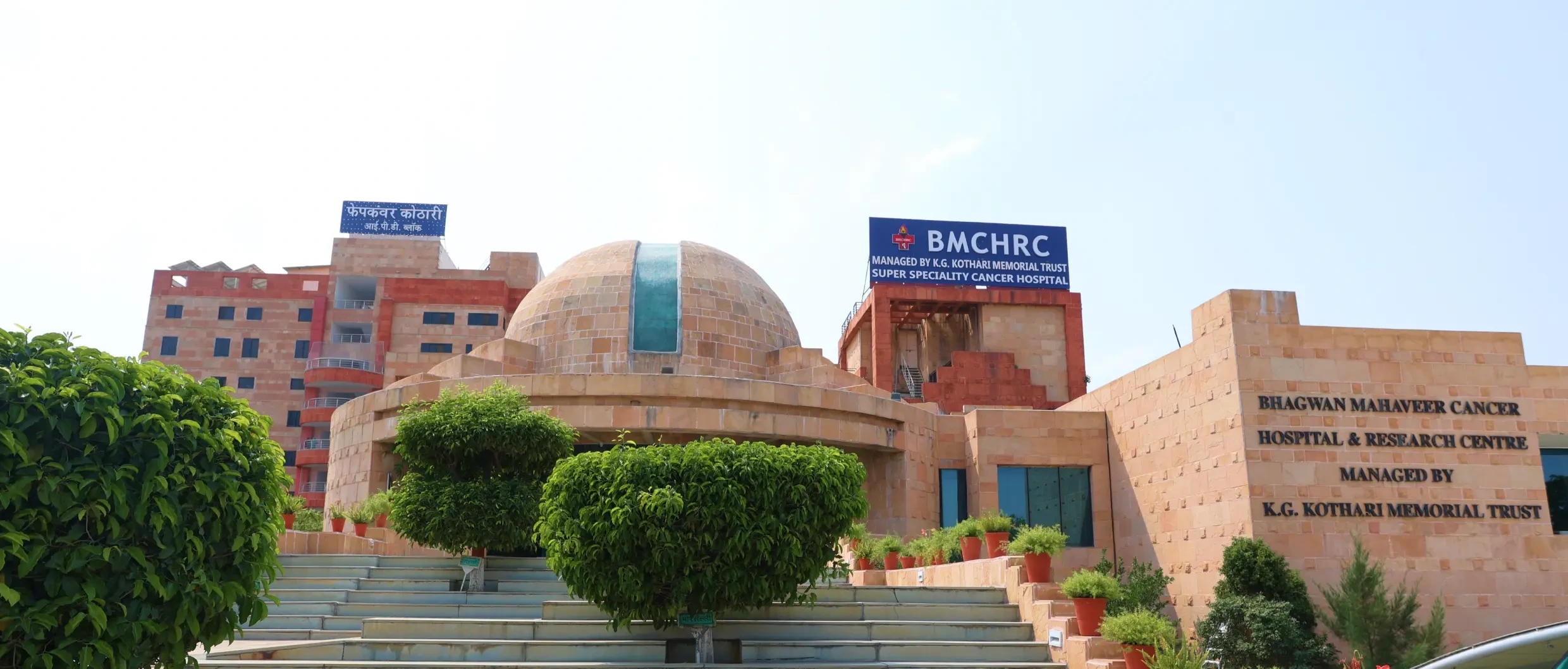Health
Rajasthan Grapples with Rising Cancer Cases; Jaipur Most Affected

Rajasthan is experiencing a serious health crisis, with an alarming rise in cancer cases across the state. Research conducted by Dr. Shri Gopal Kabra, Director (Clinical) at Bhagwan Mahaveer Cancer Hospital (BMCH), reveals that cancer incidences have surged, particularly in the Jaipur district, which has reported the highest number of cases.
In 2024, BMCH diagnosed a total of 10,363 cancer cases from a pool of 14,911 registered patients. Patients from all 33 districts of Rajasthan are treated at this facility, making the data both reliable and representative of the state’s cancer landscape.
Prevalent Cancer Types and Contributing Factors
During an interview with The CSR Journal, Dr. Kabra explained, “The patient data is unselected and self-referred, providing a valid basis for understanding the pattern and geographic distribution of cancer in Rajasthan. This analysis can guide policymakers in planning interventions effectively.”
According to the research, the five most frequently diagnosed cancers in Rajasthan are:
- Lip, Oral Cavity, and Pharynx – 26.89%
- Digestive Organs – 15.45%
- Breast – 11.38%
- Respiratory and Intrathoracic Organs – 10.02%
- Female Genital Organs – 8.41%
Other types of cancers, while not as prevalent, include malignancies of bone and cartilage, melanoma, soft tissue, male genital organs, urinary tract, thyroid, lymphoid and haematopoietic tissues, and endocrine-related cancers. Dr. Kabra attributed the rise in oral, digestive, and respiratory cancers to lifestyle factors such as tobacco use, alcohol consumption, and pesticide exposure. He also noted the increasing rates of breast and cervical cancer in women, underscoring the urgent need for early detection and treatment.
District-Wise Case Distribution
The analysis indicates that cancer cases are distributed unevenly across the state. Jaipur leads with 2,837 cases, followed by Alwar with 1,031, Ajmer with 855, and Jhunjhunu with 649. In contrast, more remote districts like Banswara and Dungarpur reported significantly fewer cases.
Based on BMCH data, the average cancer incidence in Rajasthan is projected at 134.57 cases per 100,000 population for 2025, markedly higher than the national average of 113 per 100,000.
BMCH has reported data from 14,512 consecutive cancer patients to the Indian Cancer Registry from 2020 to 2024. The top five cancers reported to the registry align closely with BMCH findings:
- Lip, Oral Cavity, and Pharynx – 31.55%
- Digestive Organs – 14.90%
- Breast – 12.17%
- Respiratory and Intrathoracic Organs – 11%
- Female Genital Organs – 8.19%
Dr. Kabra emphasized the importance of these findings, stating, “The alignment of data with the Indian Cancer Registry underscores the reliability of our findings and the urgent need to act on this escalating public health challenge.”
To address this growing epidemic, Dr. Kabra called for immediate action. He advocates for primary prevention measures, including reducing tobacco and alcohol consumption and minimizing pesticide exposure. Furthermore, he stresses that secondary prevention through early screening, diagnosis, and treatment can significantly lower both morbidity and mortality rates associated with cancer.
-

 World5 months ago
World5 months agoSBI Announces QIP Floor Price at ₹811.05 Per Share
-

 Lifestyle5 months ago
Lifestyle5 months agoCept Unveils ₹3.1 Crore Urban Mobility Plan for Sustainable Growth
-

 Science4 months ago
Science4 months agoNew Blood Group Discovered in South Indian Woman at Rotary Centre
-

 World5 months ago
World5 months agoTorrential Rains Cause Flash Flooding in New York and New Jersey
-

 Top Stories5 months ago
Top Stories5 months agoKonkani Cultural Organisation to Host Pearl Jubilee in Abu Dhabi
-

 Sports4 months ago
Sports4 months agoBroad Advocates for Bowling Change Ahead of Final Test Against India
-

 Science5 months ago
Science5 months agoNothing Headphone 1 Review: A Bold Contender in Audio Design
-

 Top Stories5 months ago
Top Stories5 months agoAir India Crash Investigation Highlights Boeing Fuel Switch Concerns
-

 Business5 months ago
Business5 months agoIndian Stock Market Rebounds: Sensex and Nifty Rise After Four-Day Decline
-

 Sports4 months ago
Sports4 months agoCristian Totti Retires at 19: Pressure of Fame Takes Toll
-

 Politics5 months ago
Politics5 months agoAbandoned Doberman Finds New Home After Journey to Prague
-

 Top Stories5 months ago
Top Stories5 months agoPatna Bank Manager Abhishek Varun Found Dead in Well









